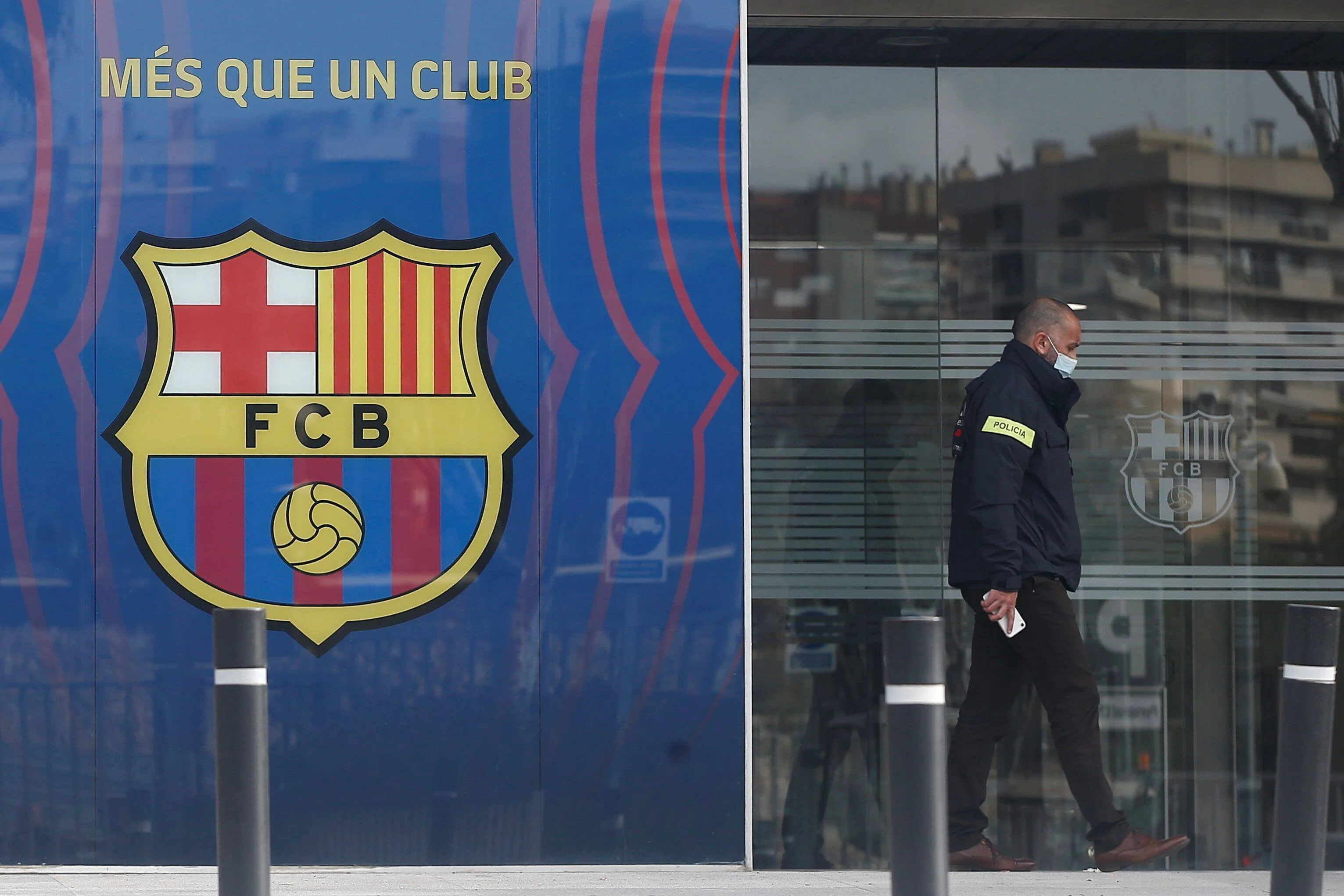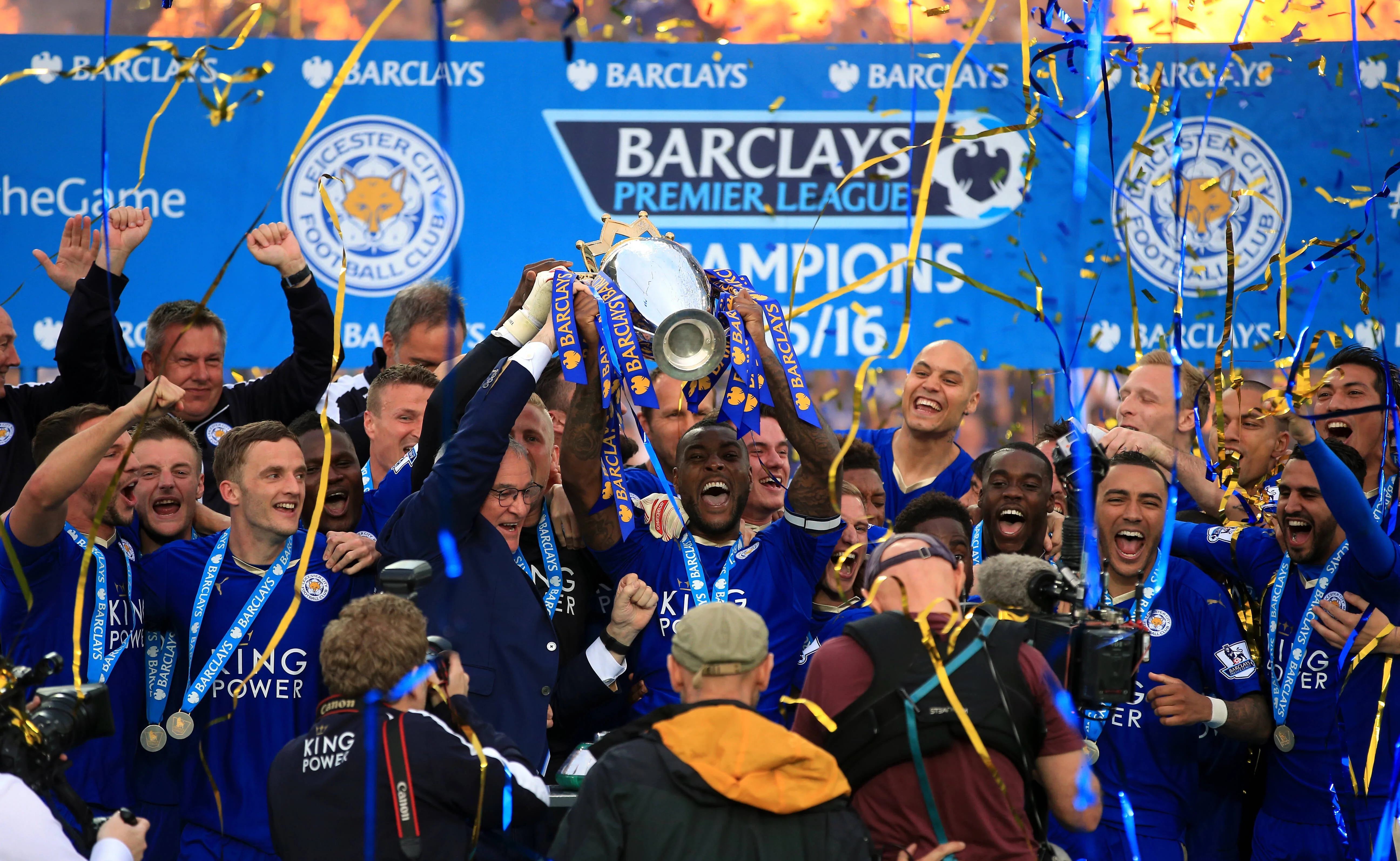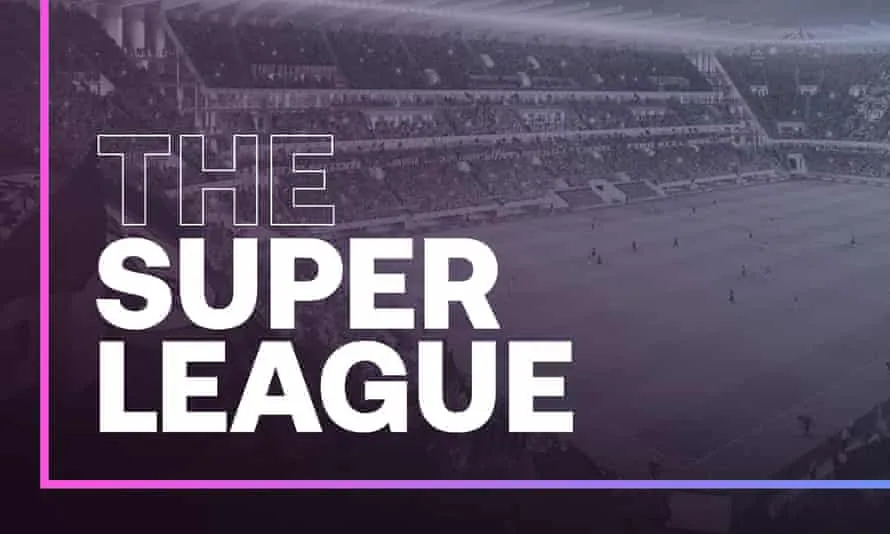Unless you’ve been living under a rock (in which case, credit must go to your rock for not collapsing under all of this stress), you will have heard of the absolute bombazo that was dropped last night.
The European Super League
The European Super League website states: “The Super League is a new European competition between 20 top clubs comprised of 15 founders and five annual qualifiers.
“There will be two Groups of 10 clubs each, playing home and away fixtures within the Group each year. By bringing together the best clubs and best players in the world, the Super League will deliver excitement and drama never before seen in football.”
That is pretty self-explanatory – we already know 12 founding members (AC Milan, Arsenal, Atlético Madrid, Chelsea, Barcelona, Inter Milan, Juventus, Liverpool, Manchester City, Manchester United, Real Madrid and Tottenham Hotspur).
Three others are set to be recruited soon (Bayern Munich, Borussia Dortmund and Paris Saint-Germain were presumably involved in the initial plans, but they are watching from the wings for now).
The five annual qualifiers are intended to be rotational, meaning that the league is not exactly ‘closed’ in theory. The top three from either group will directly qualify for the quarter-finals, while the two remaining spots will be decided by a two-legged play-off between the teams in fourth and fifth in either group.
They want to start as soon as possible – possibly even August – and host the fixtures in midweek.
There is a plan to induct a Women’s Super League too, though how this will work is unclear as Lyon (undisputedly the best women’s football team) are not one of the founding members while Liverpool (whose women’s team is not even in the first tier) are in the mix.
For now, though, that is a bit off-topical as the immediate impact will be felt in men’s football, while the women’s game should remain untouched for at least another year.
Florentino Pérez, President of Real Madrid, is the chairman of the European Super League, while Manchester United’s Joel Glazer and Juventus’ Andrea Agnelli have been officially confirmed as vice-chairmen.
The real big boys, though – the ones bringing the funding – are said to be JPMorgan Chase, who are reportedly going to bring about $5 billion to the table.
Notably, the firm has close relations with the Glazers and even once employed Ed Woodward, now the executive vice-chairman of Manchester United.

The board members have issued official statements regarding the European Super League:
Pérez said: “We will help football at every level and take it to its rightful place in the world. Football is the only global sport in the world with more than four billion fans and our responsibility as big clubs is to respond to their desires.”
Agnelli added: “Our 12 founder clubs represent billions of fans across the globe and 99 European trophies.
“We have come together at this critical moment, enabling European competition to be transformed, putting the game we love on a sustainable footing for the long-term future, substantially increasing solidarity, and giving fans and amateur players a regular flow of headline fixtures that will feed their passion for the game while providing them with engaging role models.”
Finally, Glazer said: “By bringing together the world’s greatest clubs and players to play each other throughout the season, the Super League will open a new chapter for European football, ensuring world-class competition and facilities, and increased financial support for the wider football pyramid.”
Noble words indeed, but why are they actually doing this?
The motive
Helping take football to its rightful place in the world certainly sounds very good, but that’s not really what Pérez and co. are after.
The concept of the European Super League is nothing novel – it has been around for half a century at least. These big teams have used it as a bargaining chip with UEFA quite often, but this time, it’s more than that – as is proven by the official announcements and statements being hurled.
The wild wide world has experienced a widening of the gulf between the richest of the rich and the rest with the pandemic, and the footballing circles are no different. With more money comes more power, and often with more power comes greed for even more.
Less than 24 hours after this bombazo was dropped, UEFA were supposed to make the Swiss-model format for the Champions League official, coming into effect in 2024.
This would see 36 teams participating in the competition, with each set to play 10 matches in the group stage (which would not be segregated) based on seedings.
The teams would all be ranked in the end, with the top eight directly progressing into the Round of 16 while the 16 below them would engage in a separate knockout stage to decide the other eight Round of 16 spots.
Basically, it’s very complicated, and it would lead to a lot more fixture congestion for teams than what we are currently seeing, which is already on the edge of human capabilities. For now, though, it has gone straight out of the window, just as the clubs in question want.
The Super League teams are not only opposed to the Swiss model, but they are also after a bit of cash. The New York Times’ projections suggest that each participant would make about $400 million a year, which exceeds four times the amount that Bayern took home for winning the 2019/20 Champions League.
In short, there is a lot of money being thrown around here, which is why clubs in financial trouble (Barcelona and Madrid, for example) are especially happy to join.

Moreover, participants are promised financial security. Each permanent member is set to receive about $425 million just for joining to cope with the losses sustained in the pandemic.
Further, they will receive a huge fixed amount every year which can easily take care of all of their finances, as opposed to having to watch their income go up and down depending on league position and participation (or lack thereof) in European competitions.
Arsenal and Tottenham Hotspur, for example, would not have to be bothered with fighting for the top four if this was the case this season. Better yet, you cannot even get relegated as a permanent member, so the quality of your performances has almost no financial impact, which can also be termed as security.
To add to this, they get control over the competition’s usage of its revenue is both ensured and used through broadcasting and marketing deals. In the case of the Champions League, for example, UEFA takes care of these issues, leaving the clubs with a smaller say, and consequently a smaller cut.
Andrea Agnelli has been one of the leaders of the Super League charge, and his Netflix-worthy story pretty much sums up what all of this is about.
The Juventus chairman has been watching his club steamroll Italy for the last decade, but their main motive – the Champions League – has perpetually eluded them.
Even after spending a ton of cash on the great Cristiano Ronaldo, clubs such as Lyon and Porto have proven to be his side’s undoing in the Round of 16.
Things are getting worse for the Bianconeri this year, as they are precariously close to missing out on the Serie A top four this year, with their incredibly ironic 0-1 defeat to non-Super League club Atalanta just hours before the big announcement having the potential of being the knockout blow.
Agnelli, however, could not care less. He was probably too busy backstabbing UEFA (where he proposed the Swiss Model as a then-board member under President Aleksander Čeferin, who happens to be the godfather of his daughter) and the ECA (European Club Association, an organisation he chaired until Sunday night) to care about his team’s Serie A campaign.
Essentially, the motive of a majority of these clubs is to rely on their historic successes to secure their future for good at the expense of absolutely everyone else. Heard of this before? Probably.
— Neel Shelat (@ShelatNeel) April 19, 2021
The repercussions
As much as some might love to see it, a communist revolution seems quite unlikely in the footballing world.
In all seriousness, though, the European Super League will ruin football – even kill it for some.
In an ideal world for the dirty dozen (the 12 permanent clubs involved), they will continue to play in their domestic leagues, with the Super League simply replacing the Champions League, hence the midweek fixtures. However, that certainly seems unlikely.
UEFA, along with the English, Spanish and Italian football federations, have some stern words on the matter:
“UEFA, the English Football Association and the Premier League, the Royal Spanish Football Federation (RFEF) and LaLiga, and the Italian Football Federation (FIGC) and Lega Serie A have learned that a few English, Spanish and Italian clubs may be planning to announce their creation of a closed, so-called Super League.
“If this were to happen, we wish to reiterate that we – UEFA, the English FA, RFEF, FIGC, the Premier League, LaLiga, Lega Serie A, but also FIFA and all our member associations – will remain united in our efforts to stop this cynical project, a project that is founded on the self-interest of a few clubs at a time when society needs solidarity more than ever.
“We will consider all measures available to us, at all levels, both judicial and sporting in order to prevent this happening. Football is based on open competitions and sporting merit; it cannot be any other way.
“As previously announced by FIFA and the six Confederations, the clubs concerned will be banned from playing in any other competition at domestic, European or world level, and their players could be denied the opportunity to represent their national teams.
“We thank those clubs in other countries, especially the French and German clubs, who have refused to sign up to this. We call on all lovers of football, supporters and politicians, to join us in fighting against such a project if it were to be announced. This persistent self-interest of a few has been going on for too long. Enough is enough.”
The main takeaway is that these clubs will be banned from their domestic competitions – understandably so too as they would absolutely steamroll them with the insane revenue on offer. Therefore, two possibilities remain – the alienation of the Super League clubs from the rest of football or a compromise with no Super League.
If UEFA and these FAs will stick to their words with the Super League going ahead as planned, a civil war will be on the cards.
The concept of qualification might have to be dusted, as a club that qualifies for one season will lose their domestic spot, thereby losing their chance ever to return and, upon losing the Super League spot at the end of a season, be stuck in a limbo that inevitably leads to dissolution.
The creation of a Super League will also mean that there will never be another 5,000/1 title win for Leicester – there will never be a major upset in football again.
The essence of the excitement of football is that anything is possible, but with a breakaway league, that will not be the case. This is why many have mourned the death of football since the announcement, and it certainly paralyses the game if it doesn’t kill it.

There will be an unbelievable number of conflicts at the individual level too, mainly among the world’s best players. They will be faced with a very tough choice – one which they will have to stick by for the rest of their careers potentially.
Should they choose to stay with the Super League clubs, they will lose the opportunity to represent their country again or even play in their domestic league.
However, should they choose to leave, they will see that most of the ‘big clubs’ and attractive destinations are already in the Super League, and those that remain in the status quo cannot afford even a tenth of the wages these big clubs will offer with the added revenue.
And then, there is the question of loyalty for some. Take Phil Foden, for example – he would be faced with the choice of either sticking with his boyhood club in one competition with a lot of money or have the possibility of going to another team (which will undoubtedly not mean as much to him) paying a significantly smaller salary to have the chance to help his nation in the World Cup.
The bigger problem, though, will come in the event of a potential failure of the Super League. All fans and ex-players are united in opposition to the competition.
The hype of the involvement of the world’s biggest clubs will quickly die down too – Liverpool’s semi-annual meeting with Madrid will soon become as exciting an occurrence as Burnley’s customary 0-0 borefest with Crystal Palace in Premier League terms.
Joining the competition will be crossing the point of no return, so if there are any revenue problems, whether in terms of broadcasting, funding or otherwise, the collapse of the league will mean the immediate collapse of all the 12 super-clubs involved.
The best-possible outcome
Hopefully, we will not reach the stage of a Cold War between the Super League clubs and the rest of football.
There is a high possibility of a compromise with UEFA, where the clubs in question will presumably bargain for greater control over how revenue is secured and used, while potentially also attempting to secure a couple of legacy Champions League spots based on historic coefficients and the like.
That might sound a bit familiar, and that’s because those are the exact things that the European Super League promises to bring, albeit on a greater scale.
The idea of breaking away from football entirely might even be too radical for those behind this initiative, but they will surely do whatever they can to create a similar environment in the current world.
At the same time, UEFA knows that these are its most invaluable members, and they will surely go the extra mile to keep them from leaving – even at the cost of everyone else.
Football’s saving grace in this case comes from two very opposite sources on the purity spectrum – Bayern Munich and Paris Saint-Germain.
The aforementioned UEFA statement indirectly credited these two clubs and for good reason too – had they jumped ship as well, the Super League would become even more feasible an operation, and even if not practised, it would give the clubs greater bargaining power.
Bayern may be the farmers of Bundesliga, but they have everybody’s respect in the sense that they stay true to the German principles of the 50+1 rule. In fact, they are 75% fan-owned. So, even though they are accused of farming the life out of their domestic league, their methods are organic and therefore acceptable.
PSG, however, fall in the category of state-owned clubs, where things such as sportswashing come into the picture. Their farming of Ligue 1 has been anything but organic, which is why their decision to side with UEFA is a little bit puzzling to many.
There is good reason, however – PSG’s president Naser al-Khelaifi is the Founder of the beIN media group, which holds broadcasting rights to UEFA competitions. More importantly, though, Qatar are set to host the 2022 World Cup, and the last thing they will want to do is get on FIFA’s nerve just prior to the competition since the organisation has made its stance on the matter quite clear.
Although the European Super League might not actually go through in its proposed form, its ideals will inevitably take over the footballing world.
In fact, that process is ongoing as we speak, and it has been doing so for quite a while. The harsh truth is: Football – our beautiful game – has been long gone; we are merely noticing it now.
Add Sportslens to your Google News Feed!
